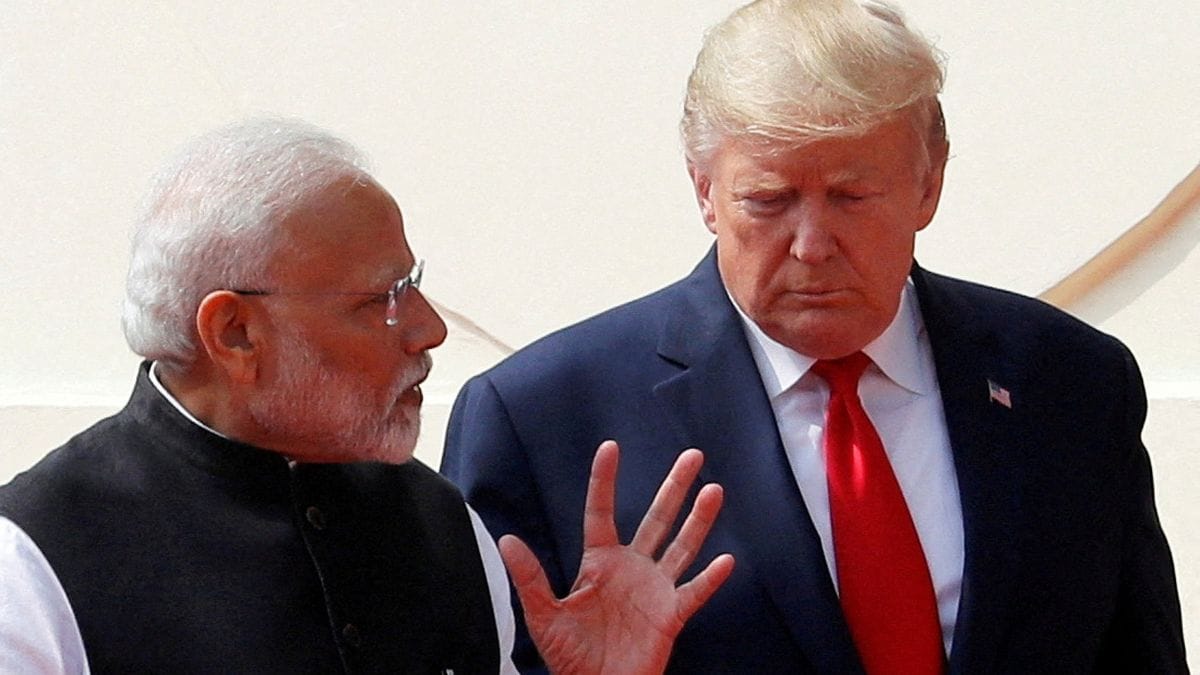

President Trump's decision to impose an additional 25% tariff on goods from India, bringing the total tariff to 50%, has sparked debate about its potential connection to the recent talks between Trump's special envoy, Steve Witkoff, and Russian President Vladimir Putin. While the official reason cited for the tariff hike is India's continued purchase of Russian oil, the timing of the announcement, shortly after the Putin-Witkoff meeting, raises questions about whether the two events are linked.
The additional tariff, which comes on top of an existing 25% duty, is a response to India's continued import of Russian oil, which the Trump administration views as helping to finance Russia's war against Ukraine. Trump has been vocal about his belief that India's economic practices are unfair to the U.S., and he has pledged to reduce trade deficits with foreign trading partners. In 2024, the U.S. had a $45.8 billion trade deficit with India, an increase of 5.9% over 2023. The new tariff is slated to take effect in 21 days, leaving a window for potential negotiations.
The timing of the tariff announcement, so close to the Witkoff-Putin talks, has led to speculation that it may be a form of leverage. Witkoff met with Putin in Moscow for about three hours on Wednesday in what was described as a last-ditch effort to secure a ceasefire deal before Trump's Friday deadline for halting the fighting in Ukraine. While the Kremlin described the meeting as "useful and constructive," no details of any outcome were announced. Just hours after the meeting, Trump doubled tariffs on India, a move that some see as a signal to Russia and other countries that continue to do business with it.
However, it is important to note that Trump had previously warned of raising tariffs on India due to its purchase of Russian oil and its trade practices. He has stated that India has "not been a good trading partner" and that he would "substantially" raise tariffs because they are "fueling the war machine". This suggests that the tariff hike may be more directly related to these long-standing concerns than solely to the outcome of the Putin-Witkoff talks.
India has responded to the tariff hike by calling it "unfair, unjustified and unreasonable". The Ministry of External Affairs (MEA) has stated that India will take "all actions necessary to protect its national interests" and has emphasized that its oil imports are based on market factors and are done to ensure the energy security of its 1.4 billion people. Some experts believe that the strained US-India relations are now facing their most serious crisis in years.
The tariff hike is expected to have a significant impact on Indian exports to the U.S., particularly in sectors like textiles, marine products, and leather, many of which are led by MSMEs. The Federation of Indian Export Organisations (FIEO) has called the move "extremely shocking". On a macroeconomic level, the tariffs are expected to reduce India's GDP growth by 0.2%, lowering forecasts from 6.6% to 6.4%.
The imposition of the additional tariff has further complicated the already strained trade relations between the U.S. and India. While both countries have been seeking to negotiate a bilateral trade agreement, the new tariff has introduced fresh uncertainty over the prospects of such a deal. It remains to be seen whether the tariff hike is a pressure tactic to push India to reduce its reliance on Russian oil or a sign of a more fundamental shift in U.S.-India relations. The 21-day window before the tariff takes effect could provide an opportunity for negotiations and a potential resolution, but the current situation presents a significant challenge to the relationship between the two countries.